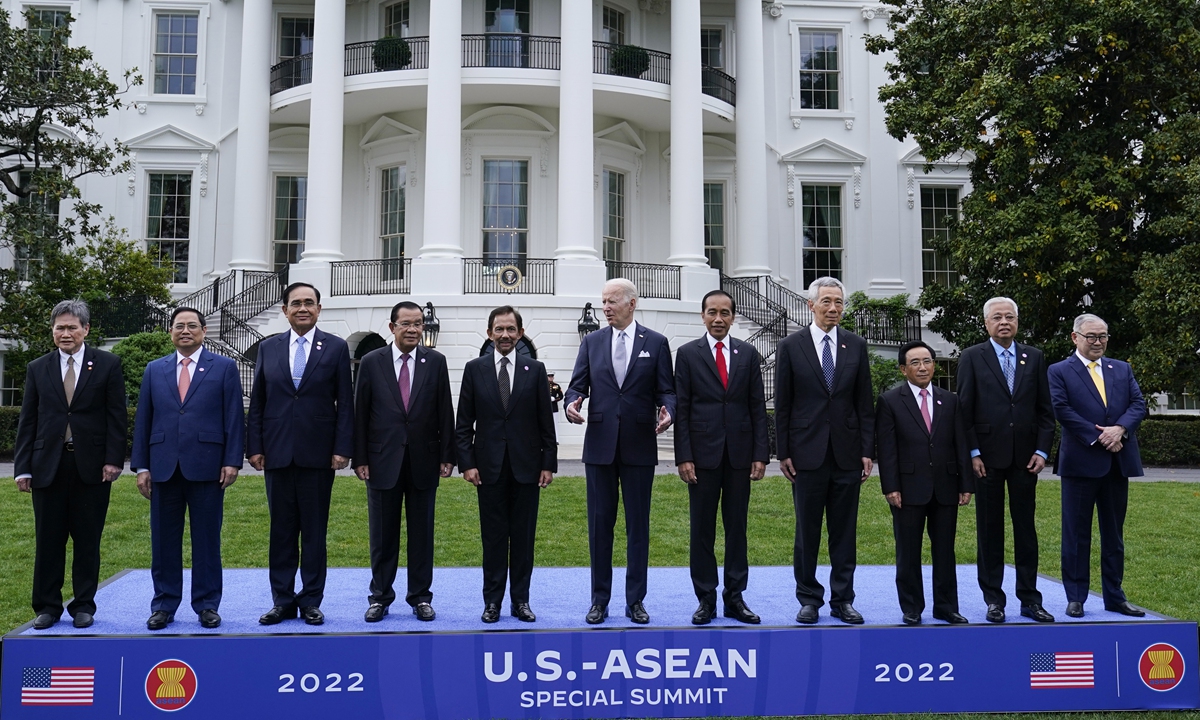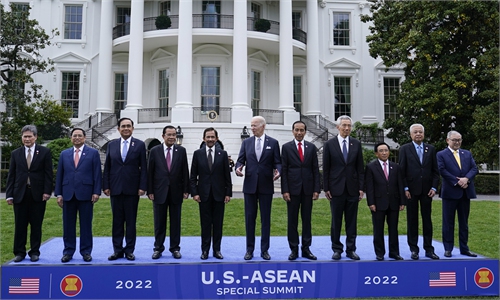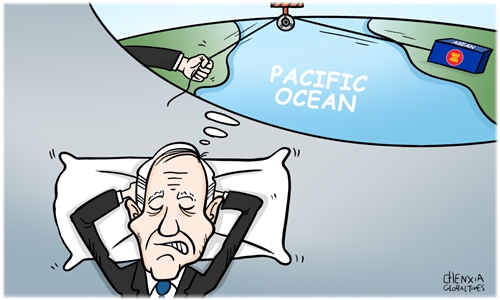Biden wants to strengthen ties with ASEAN but US investment in region suggests otherwise

Leaders from the Association of Southeast Asian Nations (ASEAN) pose with President Joe Biden in a group photo on the South Lawn of the White House in Washington on May 12, 2022. Photo: VCG
The US and ASEAN held a special summit in Washington DC from Thursday to Friday. As this year marks the 45th anniversary of the ASEAN-US Dialogue Relations, the summit aims at strengthening the two sides' cooperation.However, the US and ASEAN have conflicts over some specific content involved in the special summit. Political and security fields have been the priority of US' past foreign policy, whilst ignoring the economic side. In the US statement released after the special summit, the Biden administration said it hopes to strengthen its economic influence. Consequently, they announced over $150 million in investments to ASEAN, of which $60 million will be invested in new regional maritime initiatives and $40 million in clean energy infrastructure.
These investments in ASEAN are almost nothing compared to the huge aid the Biden administration has provided to Ukraine. For the 650 million people in the 10 ASEAN member states, $150 million is almost negligible. This will make ASEAN doubt US' ability to provide help in the economic field.
ASEAN is also reluctant to take sides when it comes to targeting China and Russia. The two sides' joint vision statement released after the summit shows mutual compromise in this regard, but this is obviously not the result the US wanted to see.
The two sides also had disagreements over the location, timing and the schedule of the special summit. In March, the US announced to indefinitely postpone the summit, ASEAN leaders proposed several dates, but the US did not accept them, and announced the final date in mid-April. ASEAN leaders flew to Washington in the context of the raging COVID-19 pandemic, hoping to strengthen bilateral interaction with the US president. However, the US side announced it would not arrange bilateral talks, which disappointed ASEAN leaders.
It's clear the Biden administration has continued the Trump administration's Indo-Pacific Strategy, hoping to bring Indo-Pacific countries into the track of competing with China. The Biden administration hopes to strengthen cooperation with East Asian countries through multilateral and bilateral ways, including this special summit and visits to South Korea and Japan a week later. The US and Southeast Asian media and scholars believe that the US has long neglected Southeast Asia since Barack Obama's second term, while China's influence in Southeast Asia has continued to rise. The Biden administration is working hard to change that. Biden not only attended the 2021 US-ASEAN virtual summit, but also sent senior US officials to visit Southeast Asia in the hope of strengthening ties with ASEAN.
And from the perspective of ASEAN, the US is both a security and an important economic partner that most ASEAN member states have long relied on. Facing the rise of China, ASEAN member states, especially US allies and countries that have disputes with China, hope to use US' power to balance China's influence. As China-US competition intensifies, ASEAN does not want to see conflicts between the two major powers, nor is it willing to take sides. Instead, it tends to adopt a relatively balanced policy while maintaining close ties with China and the US to gain more benefits. ASEAN member states hoped to strengthen ties and cooperation with the US through the special summit, ensure that the US stays in the region so as to receive more financial and technical support.
The two sides' above-mentioned expectations can reach a certain degree of consensus. For example, in the joint statement issued after the special summit, the two sides have committed to establishing a comprehensive strategic partnership at the 10th ASEAN-US Summit in November 2022. However, when it comes to strengthening bilateral ties, the US and ASEAN are likely to have sharp differences over the fundamental goals and ways of implementation, and thus they may be disappointed.
The author is an associate research fellow with the National Institute of International Strategy at the Chinese Academy of Social Sciences. opinion@globaltimes.com.cn



